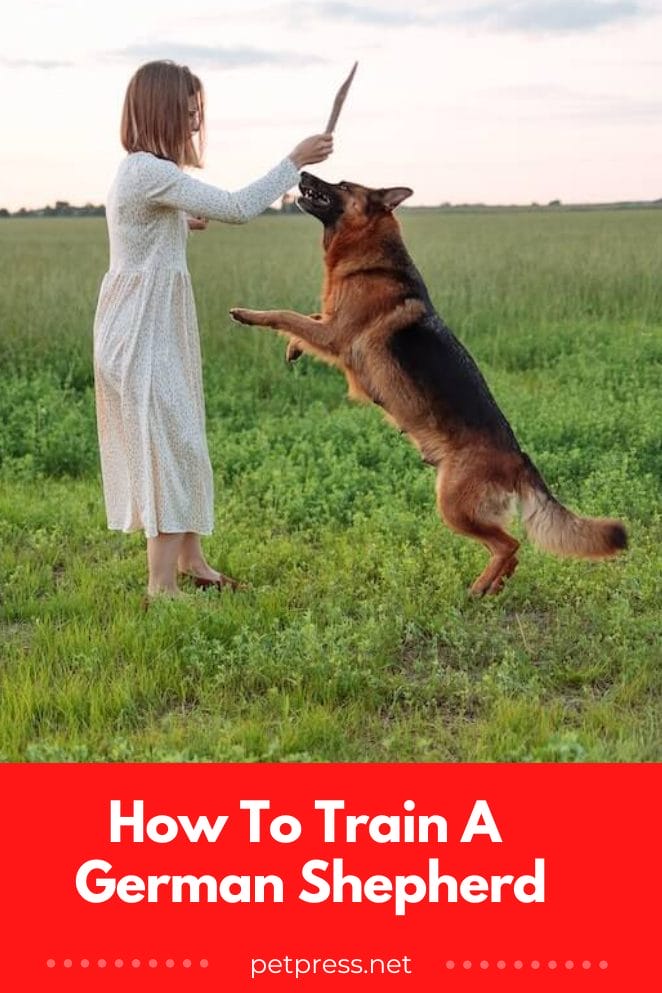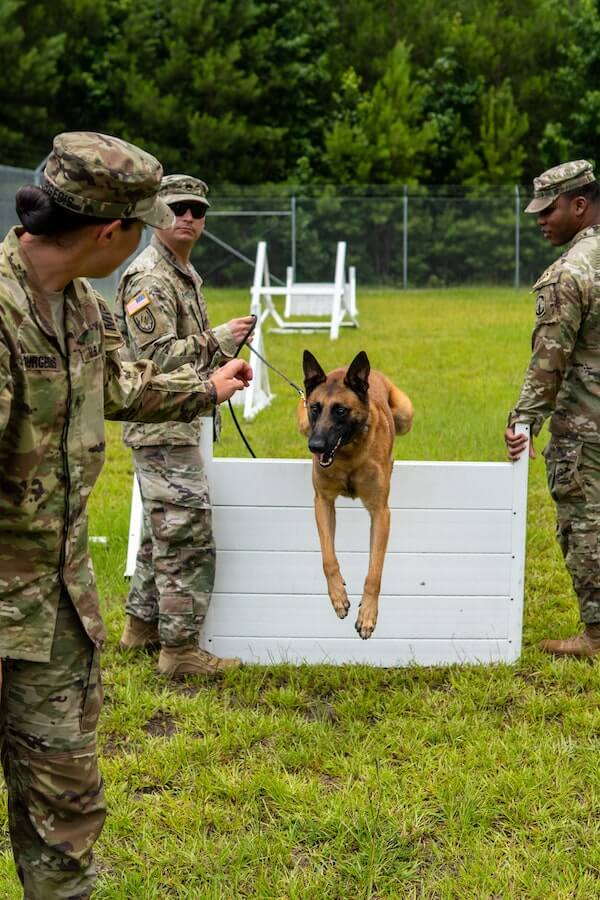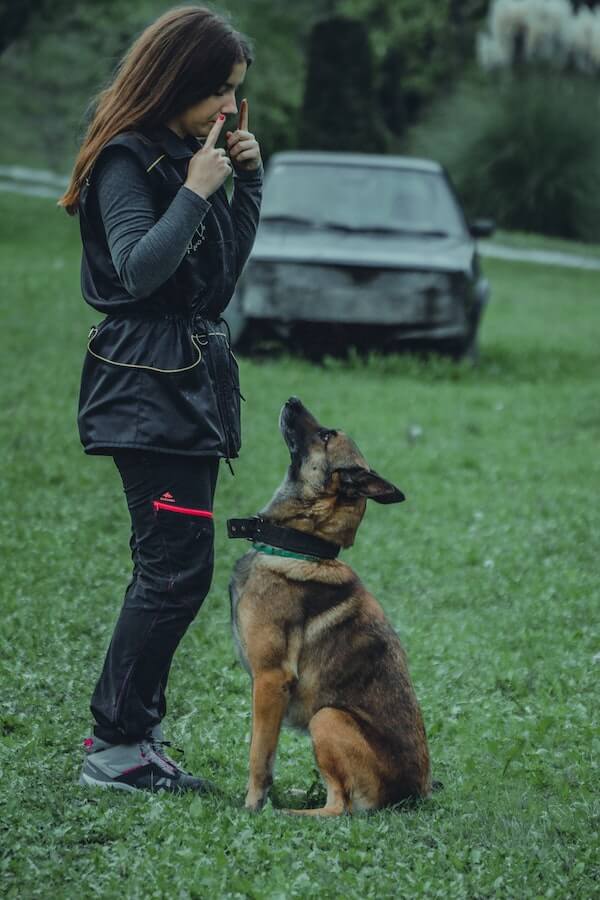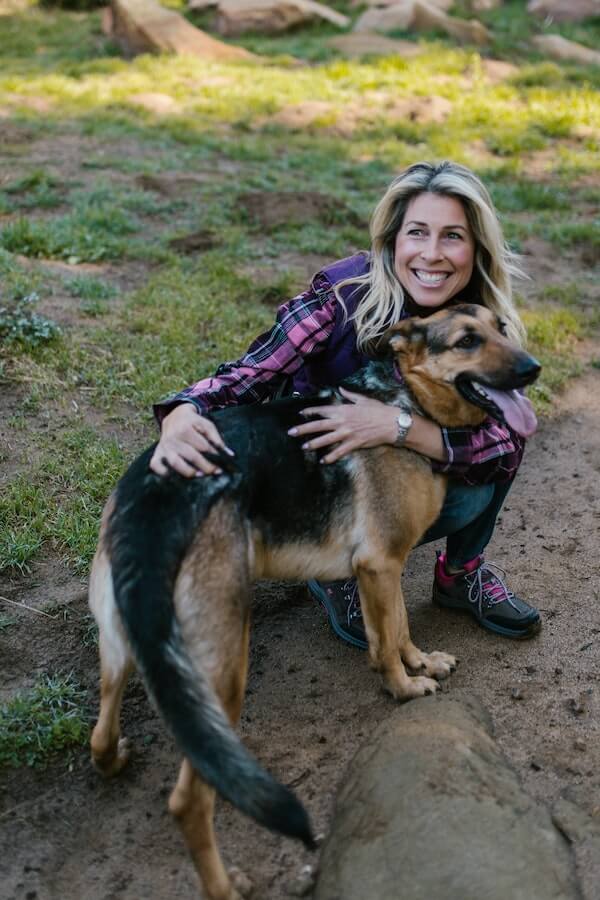
Do you want a loyal and obedient companion? One who will always be at your side? Then it’s time to learn how to train a German Shepherd!
This regal breed is known for its intelligence, strength, and loyalty – all of which makes them an excellent choice for active owners.
With patience, dedication, and consistency, you’ll be able to teach your pup the necessary skills to become a well-behaved family member.
Let’s get started on our journey of training a German Shepherd!
Are German Shepherds easy to train?
Yes, German Shepherds are relatively easy to train. This is because they’re highly intelligent, energetic dogs with a strong working drive and an eagerness to please, which makes them fast learners.
They typically respond best to positive reinforcement such as treats, praise, and plenty of playtime – all things that most owners are more than willing to provide!
German Shepherds excel in obedience training because they can quickly pick up commands and understand what their owners want from them.
As long as you reward good behavior consistently, your pup will learn quickly and be able to master even the toughest skills.
And since German Shepherds are known for being loyal and protective companions, they make great guard dogs too – especially when trained properly.

How to train a German shepherd?
Are you ready to train your German Shepherd? Before starting the training process, it’s important to understand the breed and its temperament.
These dogs are highly intelligent and eager to learn, but they need an experienced handler that knows how to motivate them and maintain their focus on commands.
Here are five steps for effective German Shepherd training:
1. Establish a Foundation:
Start with basic obedience commands such as sit, stay, come, heel, down etc. Work together on these basics until your dog has mastered them completely before moving on to more difficult tasks.
This will also lay a foundation of trust between you and your pup so they know when you tell them something they must do what you say.
2. Use Positive Reinforcement:
This is key when it comes to training any breed of dog. Be sure to give your pup lots of praise and rewards when they do something well or follow a command properly.
This will help reinforce the behavior you want them to learn and make them more willing to obey in the future.

3. Challenge Your Dog:
Once your German Shepherd has mastered the basics, it’s time to challenge them even further by teaching more complex commands such as retrieving objects, fetching specific items, and responding to hand signals.
These tasks are important for police dogs or guard dogs that need extra protection skills beyond basic obedience.
4. Exercise Regularly:
Exercise is a must for all German Shepherds! Make sure to provide your pup with at least an hour of exercise each day, whether it’s a walk in the park or playtime in the backyard.
This will help them stay healthy and mentally stimulated which is ideal for successful training.
5. Set Reasonable Goals:
Last but not least, be sure to set reasonable goals when it comes to German Shepherd training.
You don’t want to push your pup too hard, or they may become frustrated and unresponsive.
Instead, start off with small achievable goals that gradually build upon one another until your pup has mastered all of their commands!
Follow these five steps and you’ll have a well-trained German Shepherd in no time!
What age are German Shepherds most trainable?
German Shepherds are highly trainable, but they reach their peak when it comes to training at a young age.
The best time to start training a German Shepherd is between 8 and 12 weeks old. At this developmental stage, puppies have the most capacity for learning and can absorb commands more quickly.
The period of 8-12 weeks is also when you have the most control over your puppy’s environment, allowing you to apply consistent rules in order to instill good habits that will stick with them as they grow up.
During this window of time, you should focus on basic obedience commands such as sitting, staying, coming when called, and walking politely on a leash.
You should also use positive reinforcement techniques such as treats or praise in order to reward your pup for doing the right thing.

Conclusion
Training a German Shepherd requires patience, understanding, and consistency.
It is important to remember that each pup is different and may need more or less time to learn certain skills than others.
However, with proper guidance, dedication, and using the tips outlined in this article you will have your pup following commands before you know it!
Good luck on your journey of training your canine companion.
- 7 Dog Breeds With Webbed Feet And Why Do They Have Them - July 19, 2023
- 10 Best Fish For Small Tanks That Make Perfect Pets - July 18, 2023
- How to Breed Guinea Pigs: A Detailed Guide - July 17, 2023


GIPHY App Key not set. Please check settings